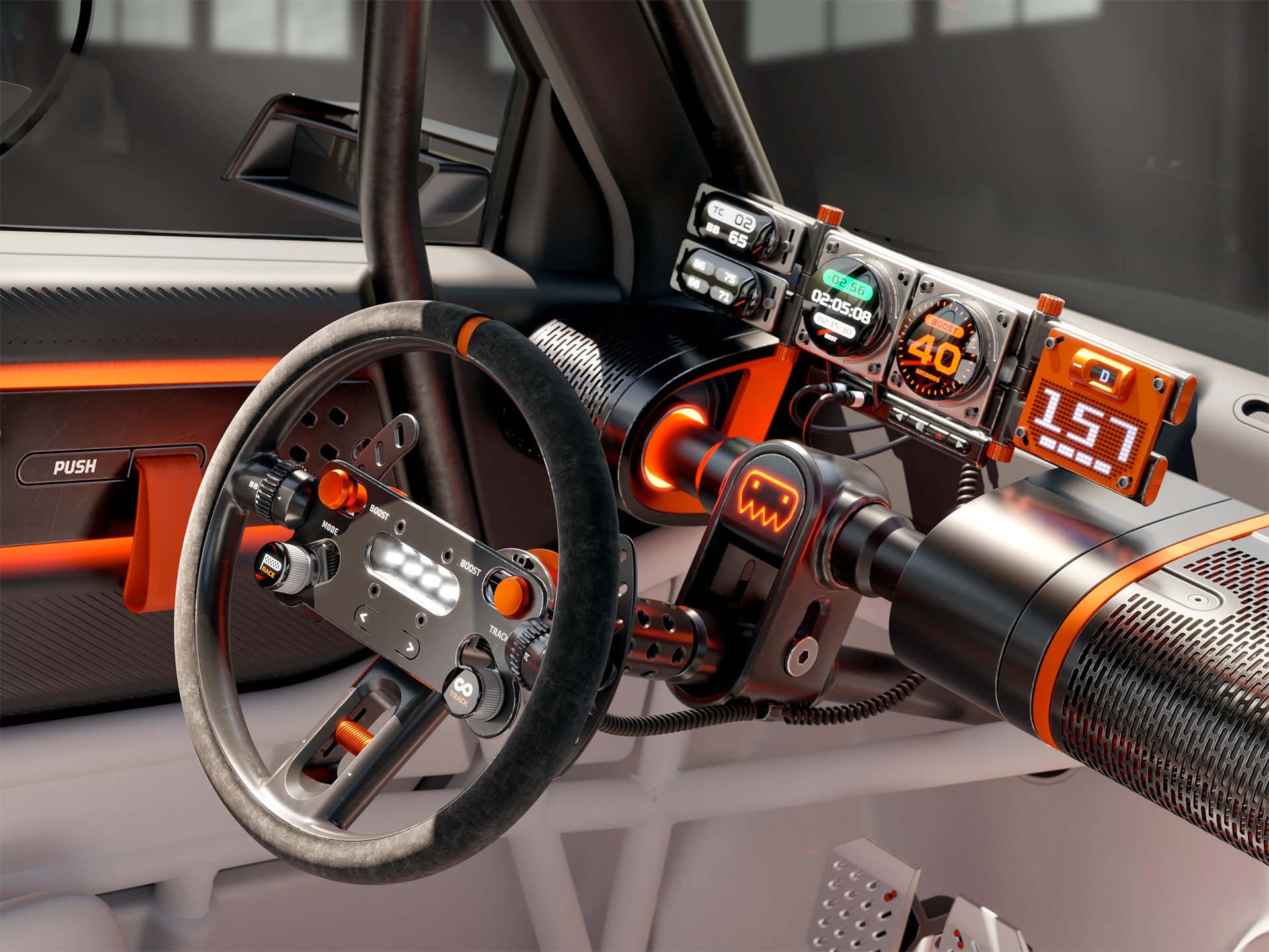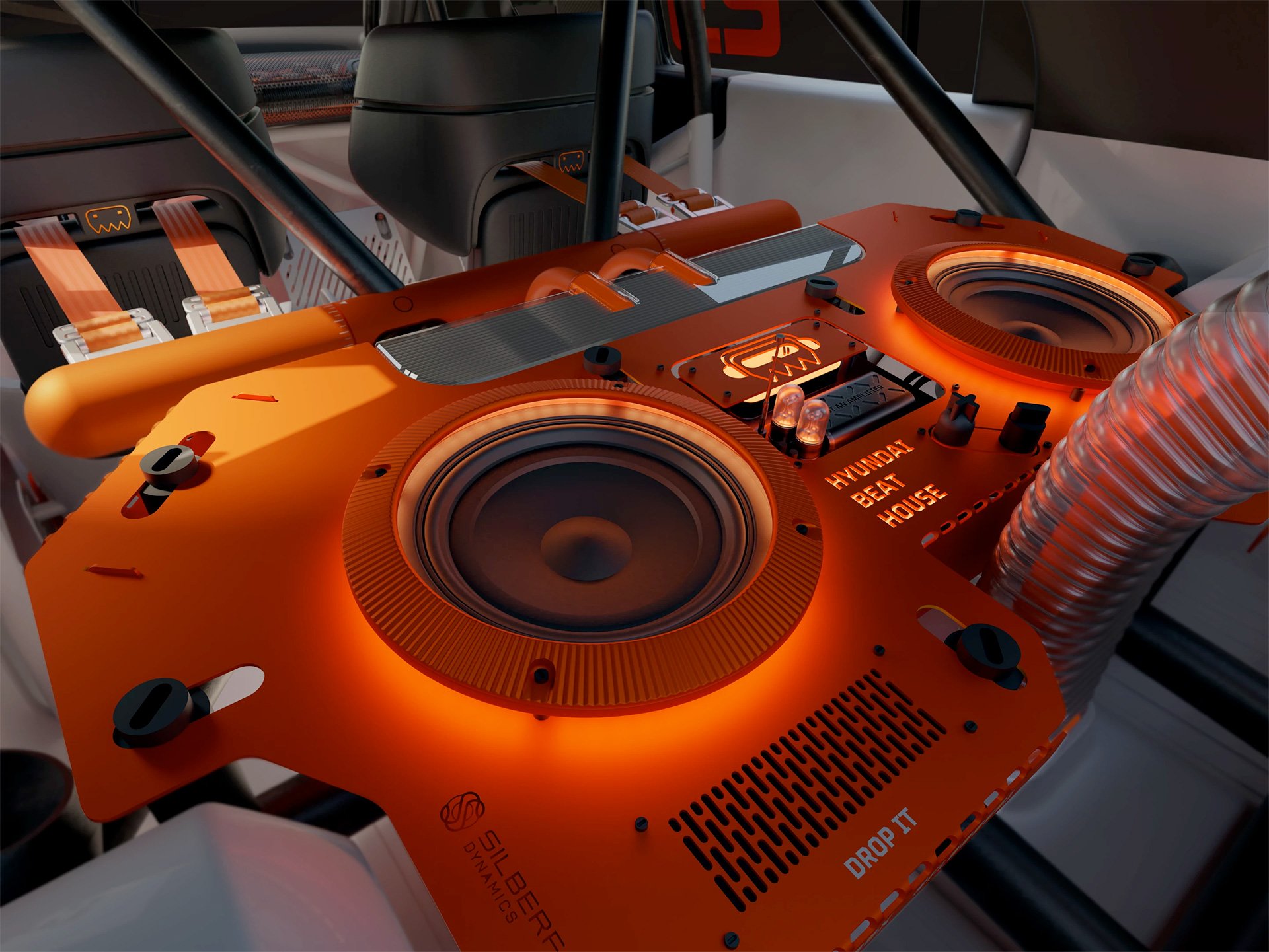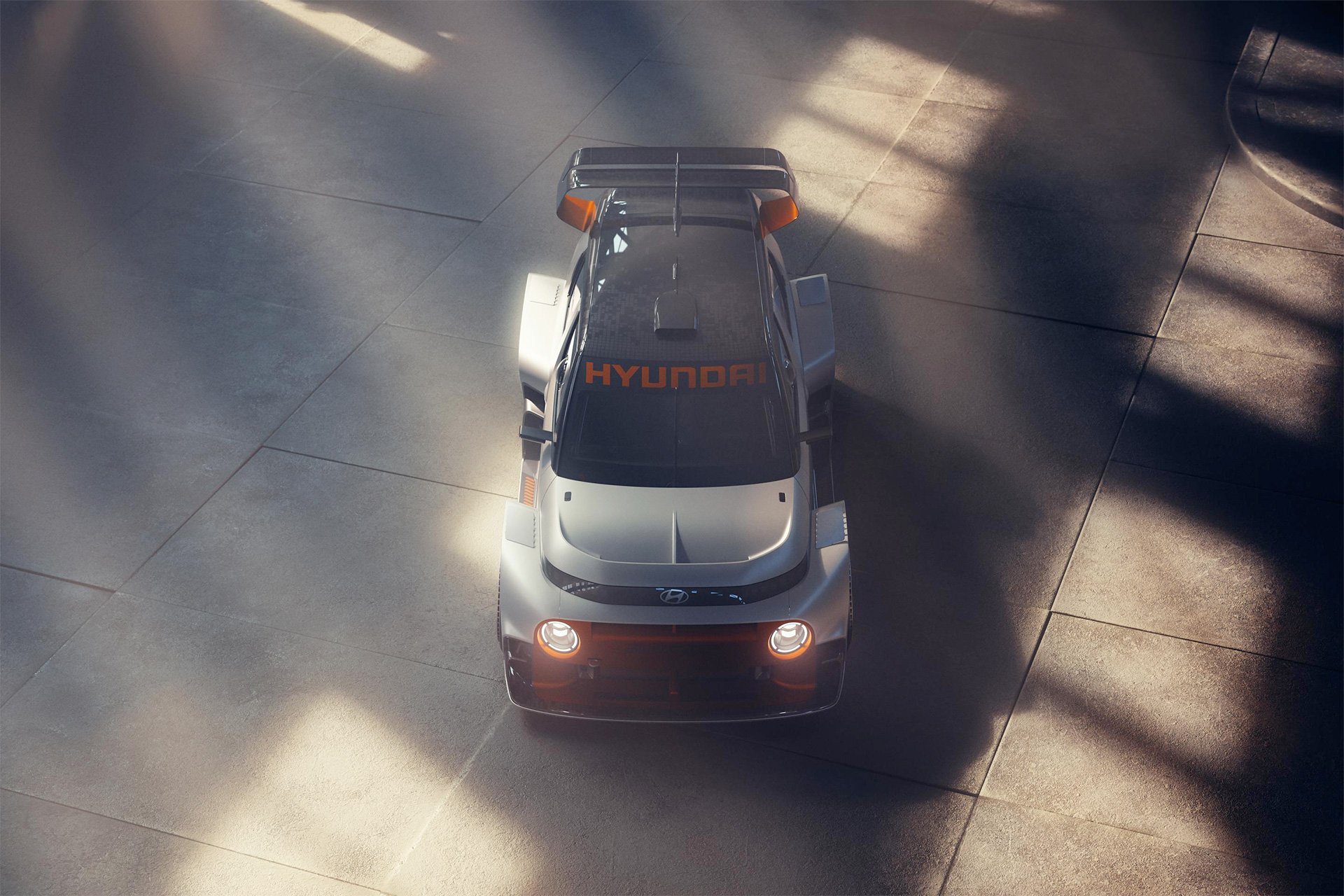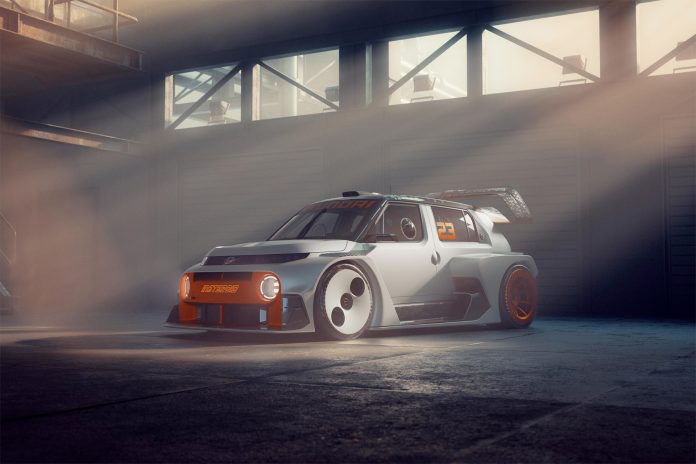Hyundai’s latest concept car, the Insteroid, may look like it belongs in a racing video game—but it’s built on an urban commuter platform. Designed to push boundaries and attract a new wave of performance-oriented enthusiasts, the Insteroid is a heavily modified version of Hyundai’s Inster EV, a compact electric city car currently vying for the 2025 World Car of the Year title.
Created by Hyundai’s European design team, the Insteroid is described as a project that aims “to challenge conventions, create emotions, and redefine what a sporty EV can be.” It fuses gaming culture with visual drama and customization, steering away from Hyundai’s typically pragmatic design direction. The result is a car that, visually at least, looks like it could race alongside Lightning McQueen in a Disney Cars sequel.
The concept began taking shape after Hyundai filed a trademark for the name “Insteroid” with the European Intellectual Property Office. From there, it was developed in secrecy with a strong emphasis on personalization and track-ready styling.
Visually, the Insteroid bears little resemblance to its Inster roots. It features flared wheel arches, an oversized rear diffuser, a sharp-edged front splitter, and an exaggerated rear wing. The wheels are track-optimized and mismatched by design—circle-spoke alloys up front and deep-dish wheels at the rear. Large air intakes on the side skirts and other visual upgrades add to its tuner-inspired character.

Eduardo Ramírez, Hyundai’s principal designer, describes the Insteroid as “a modern take on the idea of a dream car.” The vehicle’s theme leans heavily on gaming aesthetics, not only in its design cues but also in the way it is intended to be experienced and modified.
While Hyundai has not disclosed technical specifications or the powertrain setup, some educated guesses can be made based on the brand’s recent performance EVs. A dual-motor, all-wheel drive configuration similar to the one found in the Ioniq 5 N and the RN24e prototype seems likely. What Hyundai has confirmed is that the car features a dedicated Drift Mode and a “unique” sound signature—both features associated with performance-oriented EVs designed for driver engagement.

Inside, the Insteroid is stripped down to racing essentials. It features a roll cage, sporty bucket seats, and a novel instrument display called the “Message Grid,” which mimics in-game notifications. Adding to the unconventional interior, Hyundai includes a Beat House audio system designed to resemble a DJ turntable, along with a reflective race suit adorned with the Insteroid name. The seat and trim materials are made from 3D-knit fabric using recycled yarns, reflecting an eco-conscious approach.
The exterior is finished in a minimalist soft white, broken only by a vivid orange accent. The entire body structure uses lightweight lattice work, and according to Hyundai, every component is fully modifiable. The concept is promoted under the tagline: “Build it, play it, break it, repeat.”

Though Hyundai has made no announcements about bringing the Insteroid to production, rumors suggest it could preview a future low-cost electric hot hatch. For now, the company says the concept “aims to spark further interest in the Inster production model already on sale in key markets.” It’s worth noting, however, that those markets currently do not include the United States.
Whether or not the Insteroid ever makes it to showrooms, it highlights Hyundai’s ongoing interest in broadening the appeal of electric vehicles—especially to younger, style-conscious, and customization-driven drivers.

Source: Hyundai



